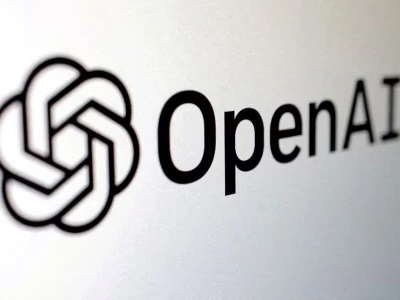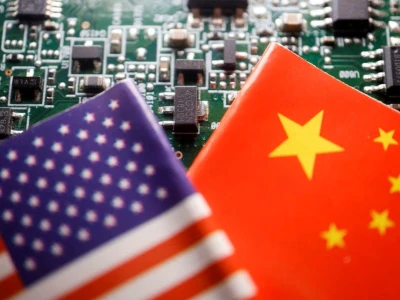
Teardown of Huawei's new phone shows China's chip breakthrough
Dan Hutcheson, an analyst with TechInsights, told Reuters the development comes as a "slap in the face" to the U.S.
Sept 4 (Reuters) - Huawei Technologies and China's top chipmaker SMIC have built an advanced 7-nanometer processor to power its latest smartphone, according to a teardown report by analysis firm TechInsights.
Huawei's Mate 60 Pro is powered by a new Kirin 9000s chip that was made in China by Semiconductor Manufacturing International Corp (SMIC), TechInsights said in the report shared with Reuters on Monday.
Huawei started selling its Mate 60 Pro phone last week. The specifications provided advertised its ability to make satellite calls, but offered no information on the power of the chipset inside.
The processor is the first to utilize SMIC's most advanced 7nm technology and suggests the Chinese government is making some headway in attempts to build a domestic chip ecosystem, the research firm said.
The firm's findings were first reported by Bloomberg News.
Huawei and SMIC did not immediately reply to Reuters' request for comment.
Buyers of the phone in China have been posting tear-down videos and sharing speed tests on social media that suggest the Mate 60 Pro is capable of download speeds exceeding those of top line 5G phones.
The phone's launch sent Chinese social media users and state media into a frenzy, with some noting it coincided with a visit by U.S. Commerce Secretary Gina Raimondo.
From 2019, the U.S. has restricted Huawei's access to chipmaking tools essential for producing the most advanced handset models, with the company only able to launch limited batches of 5G models using stockpiled chips.
But research firms told Reuters in July that they believed Huawei was planning a return to the 5G smartphone industry by the end of this year, using its own advances in semiconductor design tools along with chipmaking from SMIC.
Dan Hutcheson, an analyst with TechInsights, told Reuters the development comes as a "slap in the face" to the U.S.
"Raimondo comes seeking to cool things down, and this chip is [saying] 'look what we can do, we don't need you,'" he said.




